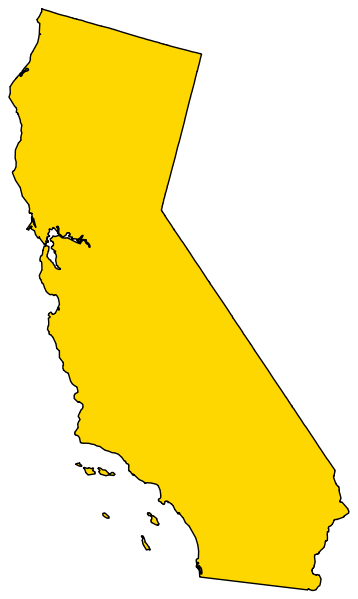 We all know California tends to be a bit on the progressive side compared to the rest of our nation – having been the first state to legalize gay marriage, the first to ban the distribution of plastic bags, and, perhaps a bit lesser known, the first to initiate a law requiring businesses to include warning labels on all products containing hazardous chemicals (a list of more than 700), as well as prohibit companies from discharging these substances into drinking water sources. This law, commonly termed Proposition 65, and formally titled the Safe Drinking Water and Toxic Enforcement Act of 1986, came about from growing public dissatisfaction in the 1980s regarding what they perceived as a lack of effort on the part of the state government to protect its citizens from exposure to certain toxics, in particular from those companies who knowingly produced products that included an unsafe amount of these chemicals.
We all know California tends to be a bit on the progressive side compared to the rest of our nation – having been the first state to legalize gay marriage, the first to ban the distribution of plastic bags, and, perhaps a bit lesser known, the first to initiate a law requiring businesses to include warning labels on all products containing hazardous chemicals (a list of more than 700), as well as prohibit companies from discharging these substances into drinking water sources. This law, commonly termed Proposition 65, and formally titled the Safe Drinking Water and Toxic Enforcement Act of 1986, came about from growing public dissatisfaction in the 1980s regarding what they perceived as a lack of effort on the part of the state government to protect its citizens from exposure to certain toxics, in particular from those companies who knowingly produced products that included an unsafe amount of these chemicals.
While the Act has good intentions, seeking to protect consumers, it is important to note the use of many of the chemicals that it deems are hazardous to our health is not prohibited by national government agencies including the FDA. Additionally, though it cited that the chemicals listed are those that are “known to the state to cause cancer or reproductive toxicity,” in reality, many of those listed only have the potential to pose these risks under certain circumstances and based upon certain interpretations of scientific data. An example of this is one prominent case that occurred in 2006 when California Attorney General Bill Lockyer and Los Angeles City Attorney Rocky Delgadillo sued Atlanta-based Coca-Cola, alleging it used lead-based paint on bottle labels imported from Mexico. In reality, the lead content present in those bottles was negligible. Dr. F. Jay Murray, a toxicologist and a founding member of the Proposition 65 Science Advisory Board even stated regarding the lead content in the Coca-Cola bottles, “In fact, the Environmental Protection Agency says you could drink 10 times as much lead in drinking water and be safe. Many consumers in Los Angeles and around the state actually drink tap water with higher levels of lead than are in these beverages.”
Regardless, the law has made a big impact on business, including within the realms of the promotional products industry, and beyond just within the borders of the State of California. Companies throughout the country that manufacture promotional products are either being met with high costs of reformulating products or repackaging them to include the proper warning labels, and those that do not contain the proper warning labels have the potential to receive penalties as high as $2,500 per violation per day, or facing serious threats to the future public perception of their company in the midst of media-frenzied lawsuits – hundreds of which, like the Coca-Cola suit, have been brought about by private consumers throughout the past two decades. Due to a combination of fear of these possible consequences, a lack of monetary funding needed to make the necessary changes to products, and concern that customers outside the state of California who are not aware of the details of Proposition 65 will be led to believe that their products are truly unsafe based upon the warning labels, many promotional products companies have decided to stop distributing their products to California altogether.
At Pinnacle Promotions, we offer many custom printed promotional items that are Proposition 65 compliant, such as our promotional BPA-free bottles. If you are a company in California, or a company that will be distributing any of your purchases to the state of California, simply let your Account Manager know and they will make sure the products you choose adhere to all Proposition 65 guidelines.
For more information about Proposition 65, and to see the entire list of prohibited chemicals, you can visit the State of California’s Office of Environmental Health Hazard Assessment website at http://www.oehha.org/prop65.html.
